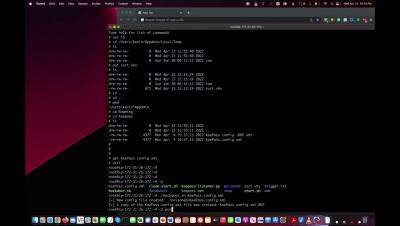Security | Threat Detection | Cyberattacks | DevSecOps | Compliance
Hacking
This Valentine's Day, Swipe Left on Hackers
Online dating is one of the fastest-growing industries in the tech world. Online dating has quickly become a sustainable way to remain social and have a relationship with someone other than your cat. But what are the chances that you’ll be swiping right on a hacker? Mobile analytics platform, Adjust, reports that in 2021, 300 million adults used dating apps worldwide with 20 million users paying for premium features.
French police arrested Julius "Zeekill" Kivimäki, one of the most notorious hackers, wanted by Finland's authorities
Read also: A global phishing syndicate used over 500 apps to steal data from phones, MITRE unveils a free tool to help organizations strengthen cyber resilience, and more.
How The "No Fly List" Hack Highlights the Need for Cloud Security
Killnet: A new group exploiting an old problem
How geopolitics and hacktivism is causing trouble for the healthcare industry
Download Your 12+ Ways to Hack Multi-Factor Authentication
Kevin Mitnick Password Manager Hack Demo
ShinyHunters suspect extradited to United States from Morocco, could face 116 years in jail if convicted
A 22-year-old suspected of being "Seyzo", a member of the ShinyHunters cybercrime gang, has been extradited from Morocco to the United States, where - if convicted - he could face up to 116 years in prison. Sebastien Raoult, a French national, was arrested at Rabat international airport in Morocco on May 31 2022, while trying to take a flight to Brussels.
Predicting which hackers will become persistent threats
Websites are central to business operations but are also the target of various cyber-attacks. Malicious hackers have found several ways to compromise websites, with the most common attack vector being SQL injection: the act of injecting malicious SQL code to gain unauthorized access to the server hosting the website. Once on the server, the hacker can compromise the target organization's website, and vandalize it by replacing the original content with content of their own choosing.











